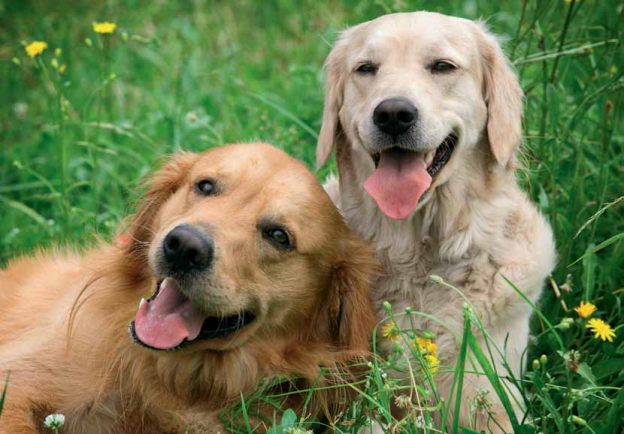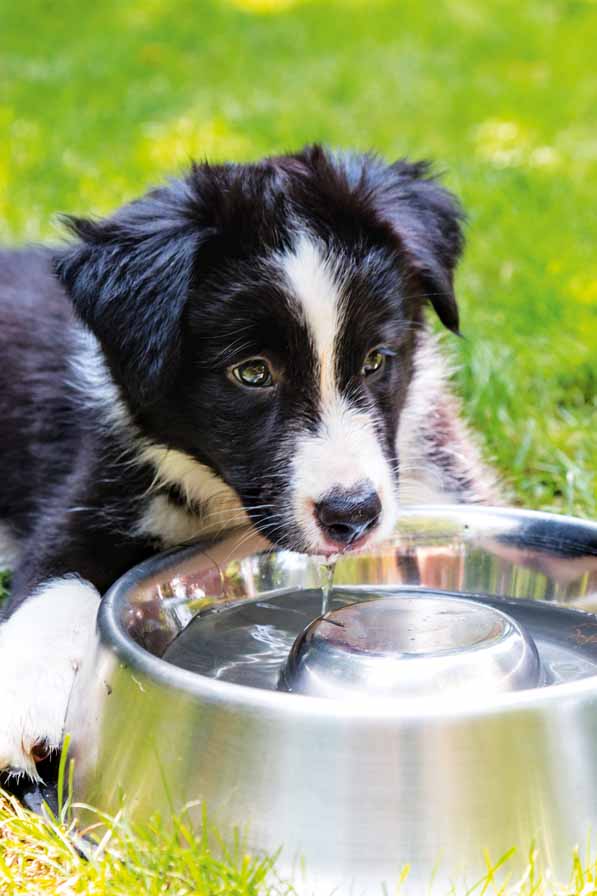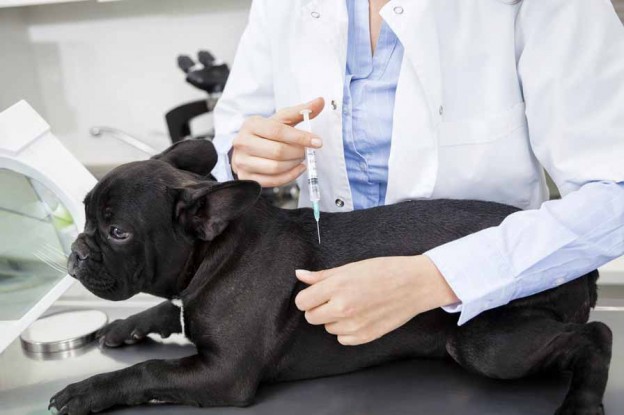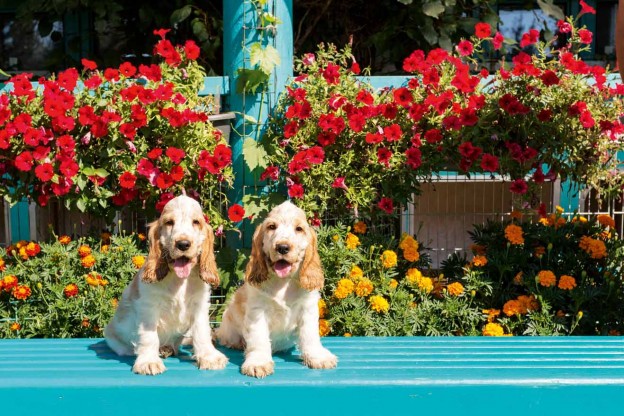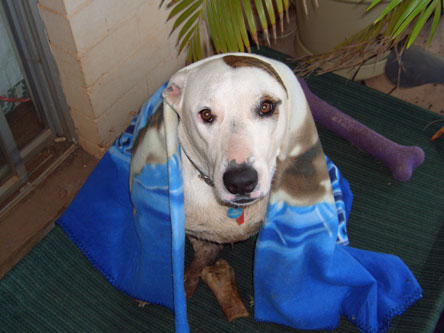
Winter can be harsh in some parts of Australia. Caroline Zambrano discovers outdoor dogs need special care during those long winter months.
Whether you have space limitations or its a personal preference, you have chosen to keep your dog outside. However, do outdoor dogs have different care requirements compared to indoor pooches?
Caroline Zambrano spoke to veterinarian Dr Mark Yee from Bexley Veterinary Hospital in NSW about the special needs of outdoor dogs. Zambrano brought along Logan, her Dobermann, for a checkup. Logan stays outside during the day, but has a warm place to sleep inside at night.
Outdoor dogs need a few different lifestyle and dietary changes to allow for the cold weather, especially in colder climates like Alpine regions or the New England area in winter, Yee said.
Lifestyle and dietary changes
- Outdoor dogs need to be cared for differently to indoor pets, especially when it comes to the following issues:
- Diet/nutrition
- Exercise levels
- Housing/shelter
- Grooming
- Health concerns (arthritis, injuries)
Nutritious diet
In the colder months, outdoor dogs require dietary changes; there needs to be an increase in energy intake rather than fat content.You don’t want your dog to gain weight over the winter, but to maintain its body condition, Yee said.
More Exercise
When it comes to exercising during winter, many outdoor dogs remain in the backyard because their owners prefer to stay curled up under a warm blanket rather than go walking in the colder weather. This scenario is also common with indoor dogs.
Whether your dog lives inside or outside, you must give your dog regular exercise regardless of the season for both physical and mental health, Yee said.
Warm shelter
Providing adequate shelter is vital when it comes to caring for an outdoor dog. Dogs that are lean, have shorter coats or do not have a double coat need extra protection from the elements, like wind and rain. They need insulated kennels, blankets and trampoline beds away from cold surfaces, Yee said.
An insulated kennel will provide warmth and keep your dog dry during snow and harsh chilling winds. Make sure the opening to the doghouse is not facing the wind.
Dog coats can also be a good way to protect your dog from the cold in winter, Yee said.
Grooming
It is during the winter that a dogs coat does its job in protecting the animal from the environment. Regularly grooming your outdoor dog will help to maintain a healthy hair coat and provide a natural insulation, Yee said.
Short-haired dogs, like the Dobermann, Jack Russell and English Pointer, do not have the insulation of long, thick-coated dogs and will need extra protection outdoors. Long coats, such as those found in the Chow Chow, Maltese and English Setter, have excellent insulation, but mats and debris caught in the hair will diminish the insulation effect. Keep the coat brushed and free of mats, Yee advised.
Health concerns
During winter, dogs are more susceptible to illness because their immune systems are a little bit lower due to exposure to more stressful situations caused by the prolonged colder weather. Yee advised outdoor (and indoor) dog owners to request a full physical examination of their dog each time they visit the vet in winter.
We may pay particular attention to their joints to detect any signs of arthritis and catch it early, he said.
Yee also discussed which illnesses outdoor dogs can suffer from during the winter months. Frostbite is a potential hazard, especially for dogs not offered proper housing, he said. Frostbite is injury or destruction of skin and underlying tissue resulting from prolonged exposure to freezing or subfreezing temperatures.
The tips of the ears, tail and feet are particularly susceptible. Hypothermia (abnormally low body temperature) is another winter-related condition caused by exposure to cold weather, especially associated with high winds, that can be fatal if not treated promptly.
Q&A with veterinarian Dr Mark Yee
Q. Can dogs get sick from being out in the cold?
A. Hypothetically, a dog could get sick from prolonged exposure to cold weather by increasing overall stress in the dog. This in time would lead to immunosuppression and make the dog susceptible to illness or infection.
Q. How can we bath dogs in winter?
A. Warm water should be used to bath your dog. Dry him off as much as possible with towels or a hair dryer afterwards. Try and bath him on a relatively warm day.
Arthritis treatments: a joint effort
If you have just realised your beloved pooch is at risk of arthritis or has been recently diagnosed with the debilitating condition, don’t fret. Dogs Life caught up with canine experts for the latest arthritis treatments available to help your dog.
One in five dogs suffers from pain and disability caused by arthritis, a painful and degenerative joint condition that develops gradually over time and unfortunately has no cure. In fact, according to a Newspoll survey, most dog owners do not realise their pooch is at risk. Pet experts say outdoor dogs are more prone to arthritis.
Caroline Zambrano met up with Bexley Veterinary Hospital veterinarian Dr Mark Yee to look at ways to manage this painful condition.
Winter exacerbates the symptoms of arthritis in dogs with worsened aches and pains, especially in outdoor dogs, Yee said.
In arthritis, the cartilage lining of the joint surface wears down and the lubricating fluid in the joint is thinner than it should be, he said. This will lead to bone on bone contact on joint movement and is a painful condition. Arthritis can be very debilitating.
Causes of arthritis
Arthritis is caused by many factors, including degeneration due to old age, injury and growing defects (elbow and hip dysplasia). Obesity and genetics also play a role.
Some breeds are more prone to developing arthritic hips or elbows and this has been discovered to be a strong hereditary influence, Yee said.
Outdoor dogs are more susceptible to arthritis than indoor dogs because they have to adjust to temperature extremes as opposed to indoor dogs with central heating, Yee said.
Larger and more athletic dogs are more susceptible they are more prone to arthritis than smaller or non-sporting breeds, he said.
Checking for arthritis
Yee said it’s important to take your furry friend to the vet during winter for a full body checkup and to be aware of signs of arthritis. During the checkup, your vet will consider your dogs history, check for soreness or restriction when examining the legs, and analyse for behavioural abnormalities or stiffness after exercise.
We check various joints and the response of the dog to joint movement, Yee said. We can also detect if there is any crepitus (clicking or crunching) present in the joint and its range of motion. Typically, an arthritic joint may be thicker than a normal joint, sore on examination of movement, have weaker muscles surrounding the joint and show crepitus on flexion/extension.
Signs of arthritis
- Reluctance to walk or play
- Limping
- Stiffness of joints in the morning
- Licking of joints
- Difficulty in rising from a resting position
- Difficulty in climbing stairs
- Change in personality less happy or playful



